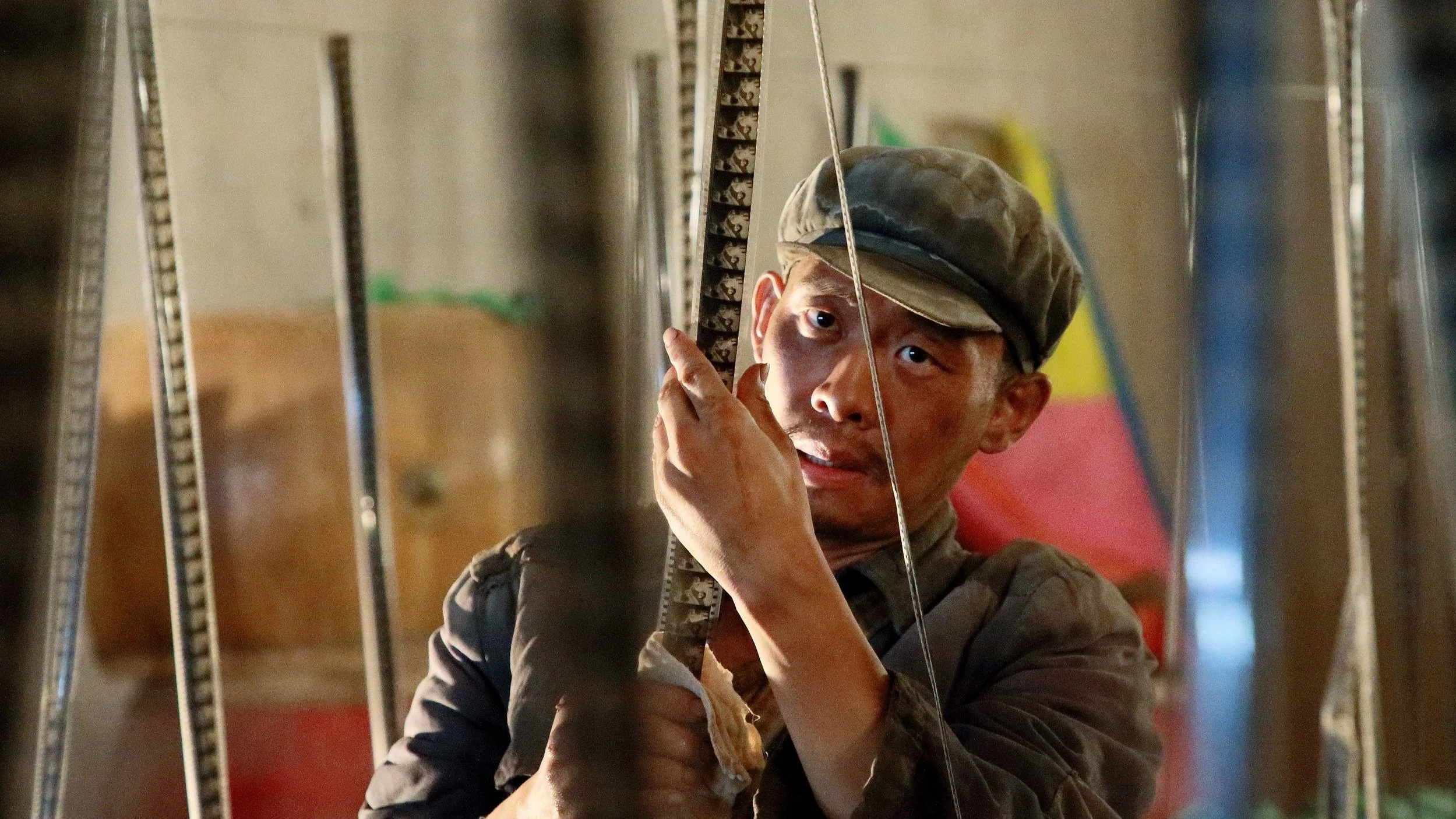One Second
Zhang Yimou’s love letter to the cinema survives censorship.
In theory it should be difficult to give an adequate critical assessment of this film. I say that for the simple reason that the basic requirement on these occasions is always to assess what the aim of the filmmaker was and then to decide how well that has been achieved. In the case of One Second, however, we have a film from China which had its planned screening at Berlin in 2019 cancelled. This was put down to technical problems, but it appears that the authorities were unhappy about its portrayal of life in China in 1975 and that the film we see now was subjected to some re-editing and probably to the inclusion of extra footage as well (I have seen a suggestion that the short coda set two years later may well have been added at this stage).
Fortunately, though, this disturbing background history proves to be unimportant when it comes to recommending the film. One Second, which is the work of the veteran Zhang Yimou, may be set in a specific time and place but the key fact about it is that it is one of those films which, in the tradition of Cinema Paradiso, is a love letter to the magic of cinema. In this case we have a story featuring a travelling projectionist known to all as Mr Movie (Fan Wei) who travels around rural areas in China to screen films for communities who love cinema and turn out en masse. The story that is built around this concerns an old newsreel which he is showing in support of a feature. It is thought that it includes a glimpse of a girl when she was a student, a shot which lasts for hardly more than a second, but which is deeply meaningful to the film’s central character (Zhang Yi). He is the girl’s estranged father, a fugitive from a prison camp who had been arrested for hitting out at a Red Guard.
The film starts out by introducing us both to the father and to an orphan girl whom he encounters by chance. This girl (Liu Haocun) is also seeking a reel of film and indeed plans to steal it. But in her case it matters not which reel because what she needs is film which she can use to make up a lampshade which will replace one accidentally burnt by her even younger brother (Tang Ziyue). To that end she pinches a reel of film which the father takes to be the one that he is so determined to view. This leads to a pursuit in the course of which they fight over possession of the reel while in the meantime Mr Movie is anxiously awaiting news of the missing footage without which he will have to cancel his next publicised and much anticipated show.
The storyline is one that could easily have emerged as decidedly sentimental on two fronts: it is no surprise that the father and the orphan girl start off at odds but gradually become close companions and, despite each of the three main characters having a different reason for seeking the reel of film, the magic appeal of cinema is a clear central thread. However, Zhang as writer (he shares the screenplay credit with Zou Jingzki) steers clear of sentimentality, partly by incorporating aspects that could be considered unexpected in a tale of this kind. Thus, in the case of the father, he comes across as an obsessive who is capable of violent actions on occasion. As for Mr Movie, what he does late on, arguably by force of circumstances, shows him in an unappealing light and the feature film that he is screening far from being a lovable old movie is a propaganda piece from 1964 entitled Heroic Sons and Daughters. Then, when it comes to Liu the orphaned child, the conditions in which she and her brother live emphasise a reality that contrasts with what Mr Movie screens for his audiences who, he claims, will watch anything.
Consequently, we have a film which, starting out with a narrative so contrived that one takes it more as a fable than anything else, develops in ways that sometimes appear critical of cinema and the way in which films can be used to influence or distract people. Pondering all this and trying to decide just what ground Zhang was seeking to cover in this film is intriguing in itself but inevitably difficult given the enforced changes. Yet, even if Zhang was setting out to question cinema as well as to celebrate it, the paramount impression is one of adoration for the art of cinema and of film stock itself. Zhang’s sense of affection for it permeates the screen and is epitomised by the scenes in which film is cleaned and restored for projection in addition to being enhanced by the wonderful colour photography of Zhao Xiaoding, a major asset throughout. Zhang’s own greatest days came early in his career when as a Fifth-Generation filmmaker he was able to take advantage of those freedoms attained in late 1980s Chinese cinema and since lost. However, his direction of One Second itself displays a mastery as well as a love of cinema.
Original Title: Yi miao zhong.
MANSEL STIMPSON
Cast: Zhang Yi, Liu Haocun, Fan Wei, Li Yan, Li Xiaochuan, Yu Yang, Wang Bing, Cao Rui, Zhang Shaobo, Tang Ziyue, Yu Ailei.
Dir Zhang Yimou, Pro Ping Dong, William Kong, Liwei Pang and Shaokun Xiang, Screenplay Zhang Yimou and Zou Jingzhi, Ph Zhao Xiaoding, Art Dir Lin Chadxiang, Ed Du Yuan, Music Lao Zai.
Huanxi Media Group/Edko Films-Mubi.
103 mins. China/Hong Kong. 2020. UK Rel: 16 September 2022. No Cert .


